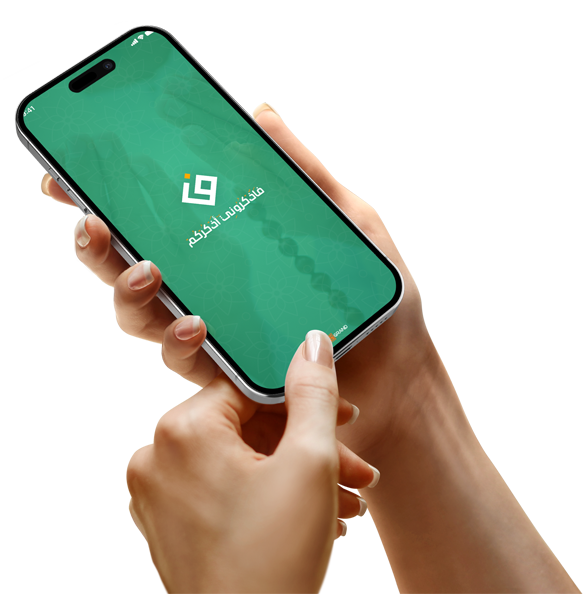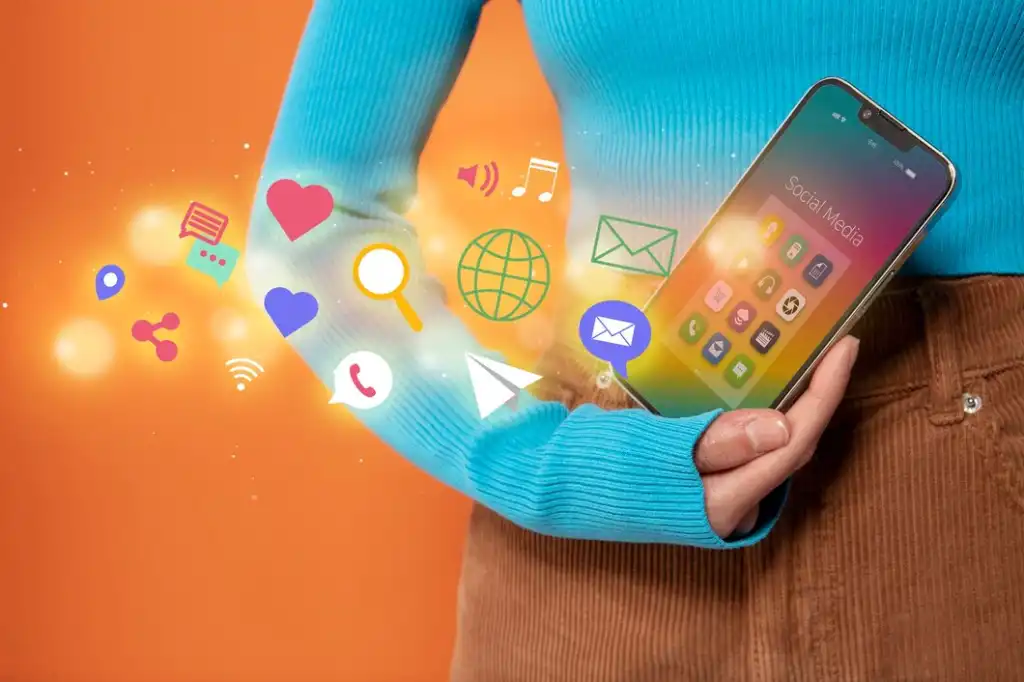Post-Corona pandemic. The ever-evolving world of information technology
With the ongoing announcement of defense data worldwide, restrictions on gatherings, and the cautious implementation of isolation policies, social distancing has become the primary interim solution to confront the coronavirus, until an international project develops a vaccine that allows people to return to the streets joyfully. Given the uncertainty about the duration of enforced social distancing, an important question remains: Is the world shaping new patterns of work and life during the crisis, particularly in an economy designed like a bicycle that falls and crashes when it stops? More importantly, how long will these patterns last? Will they be the ultimate alternative to the existing systems (disruptive technology)?
Since everyone has been confined to their homes, and amid the stronger waves of social anxiety (fear of bankruptcy), individuals are asking: How important are my daily tasks at work? Can they be easily replaced? Is there a technical alternative that can handle them, or most of them? Can I learn the new technical tools required for the job?
- The World Bank reported in a 2016 report that 6% of jobs in the United States could be replaced by 2021, which includes 7 million workers (customer services, data entry, repetitive factory and warehouse tasks).
- Lucian Floridi, in his book on the Fourth Revolution, discussed a wave of replacement of many professions, reaching extremes like lawyers and doctors, and the continued exclusion of humans from economic processes, making way for machines to communicate with each other.
Thus, technological advancements are replacing and excluding humans from many economic processes, with artificial intelligence surpassing humans in its ability to read and analyze big data with an unbiased logic. In recent years, calls for remote learning and the use of online courses instead of those conducted in physical classrooms have increased, yet they have not managed to fully close university buildings or completely replace the traditional learning system.
Similarly, e-commerce systems (with $3.53 trillion in global retail sales in 2019) have succeeded unprecedentedly, but they have not fully eradicated the direct shopping habits known to people. So, what does the coronavirus and social distancing have to do with all this? Social distancing as a solution to avoid the disease will inevitably impose new work patterns instead of halting them.
Patterns that previously went through smooth transitional phases (like e-learning and e-commerce) did not manage to fully replace their predecessors (traditional learning and direct shopping), but now they have a tragic opportunity to establish themselves as primary patterns. Moreover, the virus provides an opportunity to eliminate a significant portion of those unable to adapt to the new system; a technology-driven world imposed by the disease this time.
The impact of the coronavirus opens the door wide to concerns about job replacement and the imposition of new isolation-based work patterns.
Impact of Coronavirus on the Mobile App Industry:
The app industry was one of the fastest-growing sectors in the digital economy before the COVID-19 pandemic. In 2019, the app industry boasted 204 billion downloads and $120 billion in consumer spending. Last year, users spent an average of 3 hours and 40 minutes daily on apps, surpassing television. Users quickly turn to apps for their daily tasks and services. On average, mobile users spend 87% of their time on apps and only 13% on the web.
The global health crisis and subsequent lockdown have profoundly altered consumer behavior and reshaped the digital economy. Apps have seen a massive increase in usage, while mobile ad budgets are shrinking, with the cost per thousand impressions dropping by 14.8%. In-app advertising has become more affordable and can provide broad reach across different audiences.
Admixer recently hosted a webinar on in-app advertising during the crisis. Yaroslav Khilud, Head of Programmatic at Admixer, and Fernando Granata, Head of Programmatic Demand at Appodeal, outlined the most effective strategies and formats for in-app advertising in times of uncertainty.
App Downloads and Consumer Spending During Coronavirus:
As the coronavirus continues to spread worldwide, billions of people are trapped in some form of lockdown. With plenty of time available, people turn to their mobile devices and actively download new apps. In Q1 2020, the average weekly time spent by a person on smart apps increased by 20%.
According to AppsFlyer, among non-gaming apps, the biggest winners were news apps (+189%), health and fitness apps (+107%), music apps (+93%), and shopping apps (+30%). At the same time, previously popular categories lost their appeal, with sectors like travel (-69% direct, -62% indirect) and Maps & Navigation (-61% direct, -63% indirect) being heavily impacted.
The number of sessions has been steadily increasing since the first week of March. While non-organic installs remained the same, organic installs grew by approximately 15% between February and March. By Q1 2020, the Apple App Store set a record with consumers spending $23.4 billion. Since the beginning of the pandemic, the App Store has earned $15 billion, while Google Play has achieved $8.4 billion in revenue.
Smart App Revenues have increased significantly as people stay at home, spending more time on their phones. However, the question remains whether this surge in visits will lead to increased ad spending and in-app purchases. According to Appsflyer’s report, revenue from in-app purchases has risen since the end of March. Two-thirds of app sectors have increased their income in the last two weeks of the month. Overall, revenue from shopping via smart apps has grown by 10%.
Detailed statistics are as follows:
- +178% ad spending on shopping apps on iOS
- +122% ad spending on parenting apps on Android
- +104% ad spending on dating apps on Android
- +97% ad spending on food and drink apps on iOS
- +20% ad spending on news apps on iOS
In light of these changes, the best app company and best mobile app company stand out as your ideal choice for keeping up with these shifts and finding innovative solutions that meet the needs of the new era.

Conclusion
In 2020, not only did the app industry continue to expand, but it also gained additional momentum, with increased download rates, new subscribers, and app revenues. Daily app usage time rose to 3 hours and 40 minutes globally, while in China, where the population was under lockdown at the start of the year, time spent reached 5 hours. The lockdown pushed people to find new tools for collaboration, communication, and entertainment. The mobile gaming industry and mobile apps are thriving, driving growth in complementary services such as video streaming on Twitch and messaging on Discord. Social media apps are experiencing a new wave of growth, with TikTok nearly doubling its audience since the same period in 2019.
This growth in the app industry is excellent news for advertisers and marketers, as ad impressions within apps have been increasing rapidly since the beginning of the lockdown. In-app and in-game ads now reach a broader audience and can provide better reach and engagement than traditional channels. This is the crux: if you are interested in marketing your product or creating a brand identity for your company or project, or if you have an idea you want to reach the right audience, you should consider mobile app development for your business.
And if the above reasons do not sufficiently convince you of the necessity of having a smart app that reflects your business identity and reaches your audience, let me tell you that the global digital transformation trend before the coronavirus pandemic was already moving in a rapidly evolving direction, with statistics, figures, and analyses indicating growth in this market. What the pandemic has done is to accelerate this wave of momentum and flow toward mobile apps for everything possible, from listening to a song or enjoying a game to learning, shopping, or tracking news and more.
Ultimately, having a mobile app or a website for your business or commercial activity is the first step to ensuring a successful and ongoing business that adapts to the changing world day by day. But make sure to contact the right place with extensive experience to ensure your investment is in safe hands. Don’t wait too long and get in touch now with Grand, the leading company in iPhone app development in the Arab Republic of Egypt.
Grand is the best company for developing smart phone applications, the leading provider in mobile app programming and innovative solutions with seventeen years of experience in the Arab world. Grand is a company specializing in mobile app programming and design, website design, digital marketing services, and enhancing the brand identity of its partners and clients since 2003. The company focuses on developing and programming smart phone apps, designing websites, and developing integrated electronic systems, having executed numerous projects for hundreds of companies and organizations in the region and the Arab Gulf.
Grand has the expertise to make it your first choice for implementing your ideas and achieving your goals in the field of information technology. At Grand, we strive to design and develop integrated mobile apps for Android and iPhone as a primary focus, followed by electronic systems and website design. Ultimately, once we turn your idea into a tangible reality, we aim to provide guidance and recommendations on how to reach your customers through various digital marketing strategies and channels.
We continuously update our team with the latest technology to remain the leading company in smart phone applications. Grand has been gaining experience since 2003 and continues to improve daily in delivering the best services and strongest systems. We aim to make our mark in the technology and internet market. We are passionate about what we do from the very first moment, so be assured that absolute quality is our goal and client trust is our ultimate aim. Contact us now—our team is waiting for you.

















